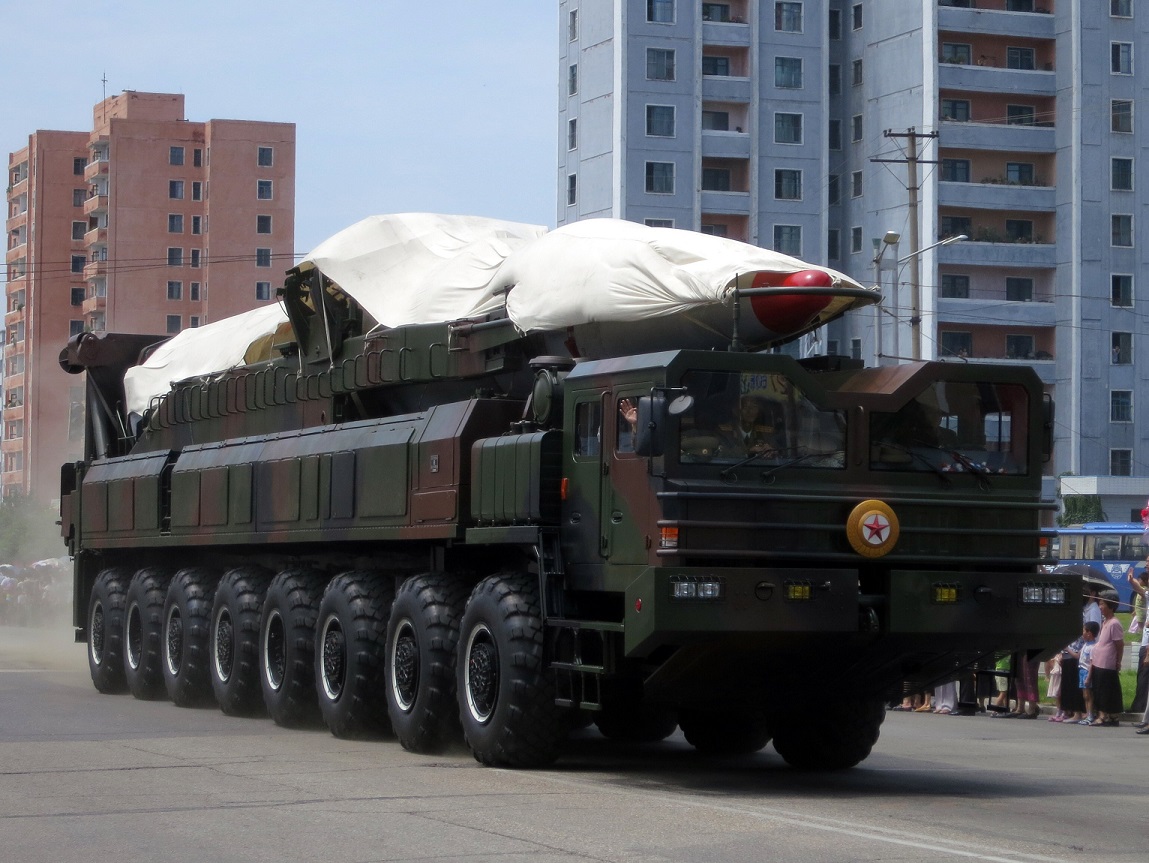Breaking the Impasse with North Korea
One of the most robust findings in the field of behavioral economics is the difference between what people demand to sell something they already own and the price they would have been willing to pay for it. For example, my wine-loving investor friend might not be willing to bid more than $750 for a desirable bottle of Bordeaux, but when received as a gift wouldn’t sell the same bottle for less than $1000. Somehow the mere fact of owning something makes it seem more valuable.

Published by The Lawfare Institute
in Cooperation With

One of the most robust findings in the field of behavioral economics is the difference between what people demand to sell something they already own and the price they would have been willing to pay for it. For example, my wine-loving investor friend might not be willing to bid more than $750 for a desirable bottle of Bordeaux, but when received as a gift wouldn’t sell the same bottle for less than $1000. Somehow the mere fact of owning something makes it seem more valuable. This “endowment effect” runs counter to classical understandings of utility and leads to the expectation that there will be fewer market transactions than standard economic theory predicts. Reinforcing other psychological processes, it contributes to a strong bias toward the maintenance of the status quo.
The endowment effect can help us understand the international impasse over North Korea’s nuclear weapons program and suggests it will be even more difficult to reach an agreement to end Pyongyang’s nuclear program than is often assumed.
Many commentators point to the international agreement that closed off Iran’s route to developing nuclear weapons as a model for North Korea. In the dispute with Iran, the challenge was to put together a package of sanctions sufficient to convince Tehran to forgo acquiring a nuclear weapon. Initially comprising a ban on the supply of nuclear-related materials and technology, as well as the freezing of foreign assets of individuals and companies involved with Iran’s nuclear program, sanctions subsequently were extended to include a ban on arms sales, the servicing of Iranian ships and aircraft and the freezing of state assets. Taken together, U.N., E.U. and U.S. sanctions were the most severe ever imposed on a single country. Their cumulative effect wreaked havoc on Iran’s economy. And they worked. The price set by the international community for Iran’s acquisition of nuclear weapons was higher than Iran was willing to pay.
But if the question confronting the international community in the Iranian deal was determining the price at which Tehran was no longer willing to pay to acquire nuclear weapons, the problem in North Korea is establishing a price for which Pyongyang would be willing to relinquish an existing nuclear arsenal. And all other things being equal, the price demanded will be higher than North Korea would have accepted to forgo the program in the first place. Because of the endowment effect, North Korea values the weapons it now has more than it did the prospect of acquiring them.
Does this mean that there is no room for a deal? No. As long as the international community, and more particularly the United States, place a higher value on a nuclear free North Korea than Kim Jong Un demands as compensation for ceding his nuclear capabilities, agreement is possible. Given that American leaders view both the risks of a nuclear armed North Korea and the costs of launching a preventive strike against Pyongyang as unacceptably high, there should be a price at which both sides are willing to cut a deal.
It is worth noting that much of the compensation the U.S. could offer North Korea in exchange for forgoing its nuclear capabilities is more symbolic than material. Like his father, Kim craves the international recognition that would follow a meeting with the President of the United States. Donald Trump once indicated a willingness to meet with Kim Jong Un “if appropriate” and “under the right circumstances.” That such a meeting would be preferable to a nuclear exchange seems beyond dispute. So what circumstances might justify it?
First, viewing the conflict with North Korea as a negotiation over the terms of an exchange rather than a competition between enemies reminds us that any compensation granted would be contingent on North Korea’s already having “delivered the goods.” Whereas an effort to compel Pyongyang to relinquish its nuclear capabilities would require the US and its allies to initiate costly military action that would need to be brought to a halt in the event North Korea complied with our demands, in an exchange-based solution, the international community would not incur significant costs unless and until North Korea begins to fulfill its obligations under a negotiated agreement. Properly constructed, the concessions granted by the international community would hardly be costs at all, but would consist primarily of the lifting of sanctions and the prospect of commerce conducted on the basis of normal economic calculations.
Second, rather than criticizing Beijing for failing to punish North Korea sufficiently for its missile tests, China should be encouraged to serve as a guarantor of North Korea’s security in exchange for giving up its nuclear capabilities. On August 1, Secretary of State Rex Tillerson asserted that Washington seeks neither regime change nor an accelerated reunification of the Korean peninsula. Hence, the U.S. would sacrifice nothing of material value were it to accede to a negotiated settlement that included Chinese security guarantees.
If such an agreement could be negotiated, it would enjoy some prospect for durability. For whereas it is hard to imagine how a policy of enhanced sanctions can affect a change of course in a country that already suffers incredible economic hardships, the upside of compliance would be the possibility of sustained economic growth from which both the people and corrupt elite of North Korea would benefit. And sanctions could always be reimposed in the event of noncompliance. Critically, Chinese leverage over North Korean behavior would be enhanced. The endowment effect and status quo bias imply that North Korea would place a high value on both the economic benefits of an agreement and the attendant Chinese security guarantees, and thus be reluctant to engage in activities that might jeopardize them. And it would be easier for Beijing to deter a non-nuclear North Korea from violating the terms of such an agreement than to compel them to hand over existing nuclear stockpiles.
Of course, any deal with North Korea would have to be subject to a very intrusive inspections regime to monitor compliance, but once reached would provide the circumstances appropriate for a meeting between the President of the United States and the leader of North Korea. Appeasement? No, a reward for good behavior.





